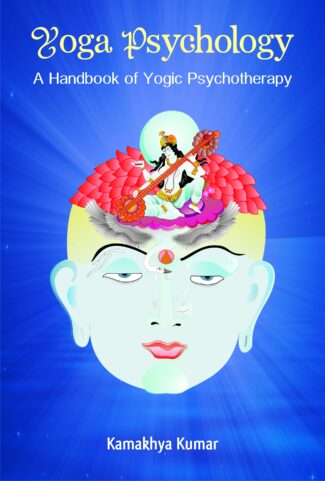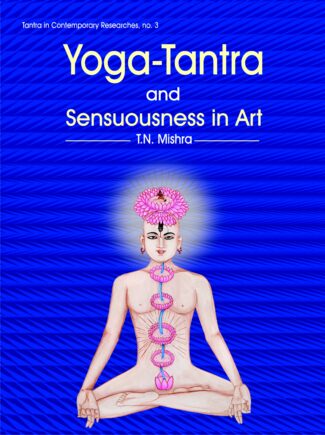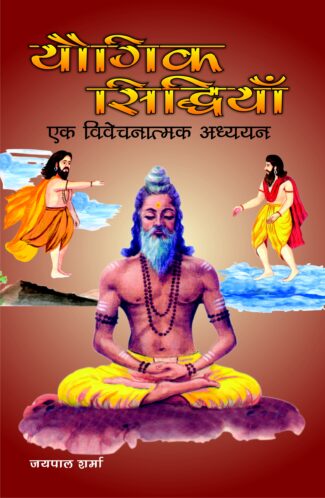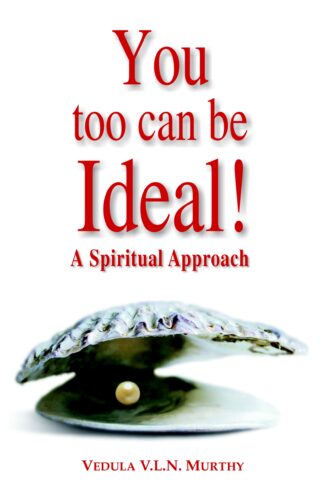Showing 381–384 of 384 results

The sound practice of yoga enables one to have a disease-free body and keen intellect. This book details the impact of various yoga practices on psychology and specifies that consciousness has a wider conation in yoga in developing one’s personality traits and leveraging them further to keep him/her happy and experience a blissful life.
Yoga psychology is both a positive and a normative science. It not only analyses human personality and its growth, but sets normative ideals and prescribes techniques to achieve such objectives, as well. Thus, expansion of consciousness and making oneself the master of his/her mind are the broad objectives of yoga psychology. The topological aspect of mind as described by Freud in terms of conscious, subconscious and unconscious levels was well detailed in the yogic literature, thousands of years ago. The sound practice of yoga enables one to have a disease-free body and keen intellect.
The book, thus, details the impact of various yoga practices on psychology and specifies that consciousness has a wider conation in yoga. Yoga presents vivid and sound meditation procedures for the attainment of psychic consciousness through the awakening of kundalini. Homeostasis or balance is the central principle in yoga psychology, and it holds that any sort of imbalance in the system physical, psychological or pranic creates disorders and the solution lies in rebalancing it. Here comes the role of yogic psychotherapies such as prarthana, mantra sadhana, spiritual couselling, pranayama, yajna, sankirtana, svadhyaya and vrata anushthana.
This volume enunciates that yoga psychology is an applied science, and thus has remedies for many individual and social problems. It deals at large with the application and benefits of yogic practices in developing ones personality traits and leveraging them further to keep him/her happy and experience a blissful life.

Dr. T. N. Mishra explores the moral and philosophical meanings and significance of yoga and studies the philosophies and practices that bear reference to it. Abounding in illustration, notes and references to scholarly treatises, it explains yoga psychology, its classification, techniques and stages and practice and concentrating on Yoga-tantra and its impact on Indian art and architecture.
The word yoga and the various concepts associated with it are being interpreted and understood with great interest the world over especially in recent years. This work by a noted research scholar, Dr. T. N. Mishra explores the meanings of the word yoga and its moral and philosophical annotations, and conducts an intensive study of the philosophies and practices that bear reference to it. A thorough research, Yoga-Tantra and Sensuousness in Art goes into the theoretical foundations of Yoga, tracing its roots to the sacred scriptures and explaining the goal of Yoga, the discipline it involves, Yoga psychology, its techniques and stages, and classification and practice of Yoga as Mantra-Yoga, Laya-Yoga, Hatha-Yoga and Raja-Yoga. It comprehensively examines the aim and philosophy of Yoga-Tantra and the way to awaken the kundalini through the cakras practising Yoga-Tantra. It makes a detailed analysis of the Yoga-sadhana of the Natha siddhas (the ulta-sadhana) and Yoga-sadhana as found in Vaisnava and Buddhist Sahajiya. Citing interesting examples, it importantly deals with Yoga and Tantra as reflected in Indian art: the impact of the philosophy of Yoga-Tantra with its subtle sensuality on Indian secular and religious architecture and sculpture. Abounding in illustrations and extensive in notes and references to ancient scholarly treatises and exponents of Yoga and to modern researches on the subject, the book will interest all scholars of Indian art, philosophy and spirituality and appeal to general readers on Yoga as well.

Dedicated yogic exercises lead one to attain mystical powers, though that is not the core intention of yoga. This book cites several examples in which people have attained superhuman powers through yoga, and attests that these are not mere illusions, but can be assimilated and achieved by dedicated efforts even today.
India is invariably the homeland for Yoga being entrusted to the offsprings of RishisMaharshis of the olden times. Yoga is for the physical, mental, intellectual and spiritual development of a human being. At one end the attainment of salvation through ones spiritual awakening and knowledge of the eternal truth is considered as the essence of yoga, on the other an efficient yogi can attain the special mystical powers through yoga sadhana. All this has been illustrated in the book Patanjaliyogadarshana of Maharshi Patanjali. The attainment of mystical powers should not be the prime object of yogic exercises, but most of the practitioners adhere to them to attain para-natural powers only. Though it is impossible in todays scientific age to easily believe in these mystical powers, this book majestically proves citing various examples, that these superhuman powers are not mere illusions but can be assimilated and achieved easily even in the materialistic world of today. These powers can be accomplished by practising the specifically prescribed path of the yogic philosophy. Such powers, when achieved should not make a person self-indulgent, but these should be used for the public welfare only. This book, undoubtedly, will be beneficial not only for those who specialize in yoga but also for a layman.

This small book, written in a simple and lucid style, contains teachings of great men, gleanings from the scriptures, and examples from the epics and Puranas, and suggests easy solutions to the various problems faced by man in the present-day world of violence, wars, killings and disasters, and how to have a holistic approach to life.
Indian culture, and civilization in particular, is marked by a spiritual thought culture that is a good guidance to the ideal values of spirituality. The book is an effort to reveal the worth of cultivating spiritual values for a healthy, happy and peaceful life particularly in the modern, increasingly complex world of today. It comes as an inspiration to follow the path of simple living and high thinking, in the footsteps of saints and spiritual thinkers. This work deals with the path of dharma or righteousness, the meaning of a divine life, importance of spiritual knowledge, the great potential power in the universe which is not seen but which controls everything, and the nature of the universe. It emphasizes the need to control ones senses to achieve mastery over them, the need to keep the mind under control and the importance of the kind of food we consume to develop our inner qualities. Referring to the views of thinkers and philosophers of India like Shankaracarya, Sri Ramakrishna Paramahansa, Swami Vivekananda and others and to Indian legends and tales, it underlines the importance of cultivating interpersonal relations, the habit of renunciation, good company and meditation as a technique to self-fulfilment and peace.
| There are no products |